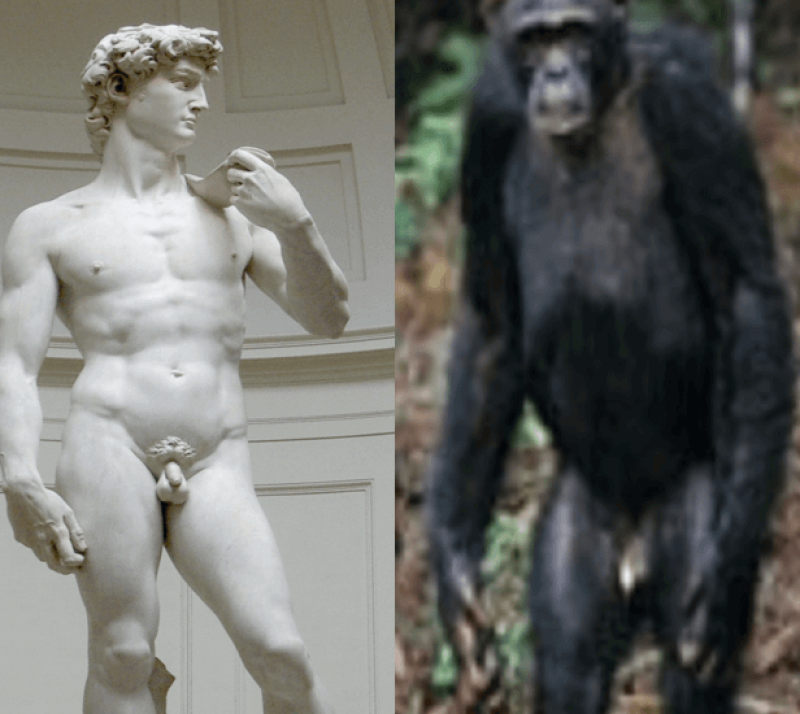…
Male chimpanzees…have a multi-male to multi-female mating system…A female therefore may contain sperm from multiple partners at any one time, which puts the sperm itself…into direct competition. For this reason, chimpanzees have evolved huge testicles in order to produce massive amounts of sperm, multiple times a day.
Male gorilla are also much larger than females, but they have a…harem-style mating system…With little or no competition actually inside the uterus, gorillas have had no need for a testicular arms race to facilitate the production of more and more sperm. Their testes, therefore, are relatively small. This is similar to modern humans….
…
The human penis is in fact extremely dull – it does not have lumps, ridges, flanges, kinks or any other exciting feature that other primates have. In primates, this lack of penis complexity is usually found in monogamous species.
The GLP aggregated and excerpted this blog/article to reflect the diversity of news, opinion, and analysis. Read full, original post: Why Humans Evolved Big Penises But Small Testicles
For more background on the Genetic Literacy Project, read GLP on Wikipedia































